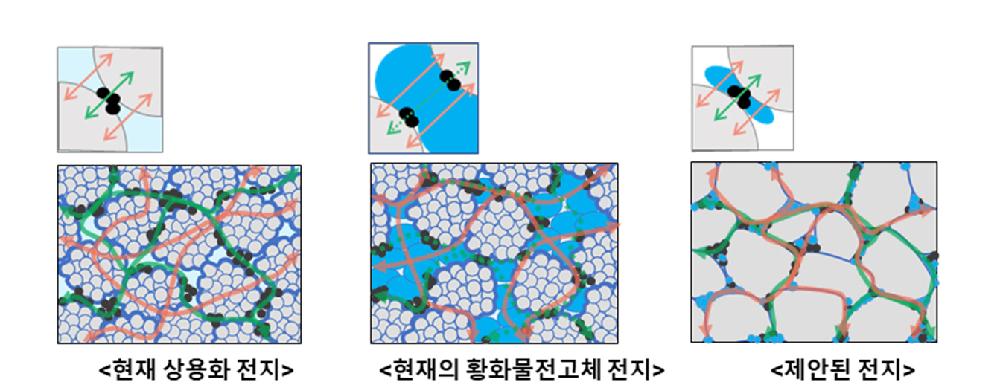Touching Tomorrow atPukyong National University
NEW BEGINNING, NEW INSPIRATION
Pukyong Today List
| Next generation high-capacity battery will be commercialized soon | |||
| WRITER | Department of External Cooperation | WRITE DAY | 2019-07-01 |
| COUNT | 138 | ||
| Next generation high-capacity battery will be commercialized soon | |||||
 |
Department of External Cooperation |  |
2019-07-01 |  |
138 |
|
"Attention", a study on the commercialization of next-generation solid-state batteries without explosion risk
Professor Oh Pil-gun of Pukyong National University (Dept. of Graphic Arts Information Engineering, see photo) has been conducting research on the commercialization of sulfide-based solid-state batteries, the research results show that the efficiency of existing batteries is improved by 20 % while the ratio of electrolyte in the electrodes is reduced to greatly improve the energy density of the cells. A solid-state battery is a battery that uses a non-combustible solid electrolyte, unlike a lithium ion battery that uses a flammable liquid electrolyte. Although there is no risk of explosion or fire, commercialization of oxides, polymers, and sulfides has been conducted, but it has been difficult to commercialize them because of low energy density and declined output characteristics at ordinary temperature. Professor Oh pointed out the problems of current solid-state battery research in the present study as a high electrolyte ratio in the electrode, and proposed a new high-density, high-output electrode design using primary particle type NCM (nickel cobalt manganese oxide) and it is evaluated that he has greatly advanced commercialization of solid state battery. Professor Oh said, "So far, all previous solid-state battery studies have made electrode designs with higher electrolyte ratios of over 10% to improve the high interfacial resistance between the active-solid electrolytes. As a result, the energy density of the electrode is lowered, and the electron transport path in the electrode is blocked due to the high ratio of the electrolyte, thereby greatly increasing the electron resistance." He said "Sulfide-based solid-state batteries have higher output power than the others, but Current research has shown that the bottom-up method, which optimizes the electrode performance using existing materials, is very poor in output performance and energy density." and added, "In order to secure better battery characteristics than commercialized lithium secondary batteries, we have developed a top-down system that develops the ideal electrode that enables the design of an ideal solid electrolyte battery and a new top-down research paradigm is needed to develop the optimal materials that enable the design." The paper, "Advances and Prospects of Sulfide All-solid-state Lithium Batteries via One-to-one Comparison with Conventional Liquid Lithium Ion Batteries", is published in Advanced Materials (IF 21.95) Recently published. Professor Oh is not only designing a new all-solid-state battery electrode technology, but also researching and improving the deterioration mechanism of only the entire solid-state battery and building a dedicated lithium sulfide-based battery to evaluate this. <Pukyong Today> |
 Growing concerns about the safety problem of large-capacity secondary batteries used in electric vehicles, researches on high-energy batteries for commercialization of next-generation solid-state batteries without explosion risk are getting attention.
Growing concerns about the safety problem of large-capacity secondary batteries used in electric vehicles, researches on high-energy batteries for commercialization of next-generation solid-state batteries without explosion risk are getting attention.